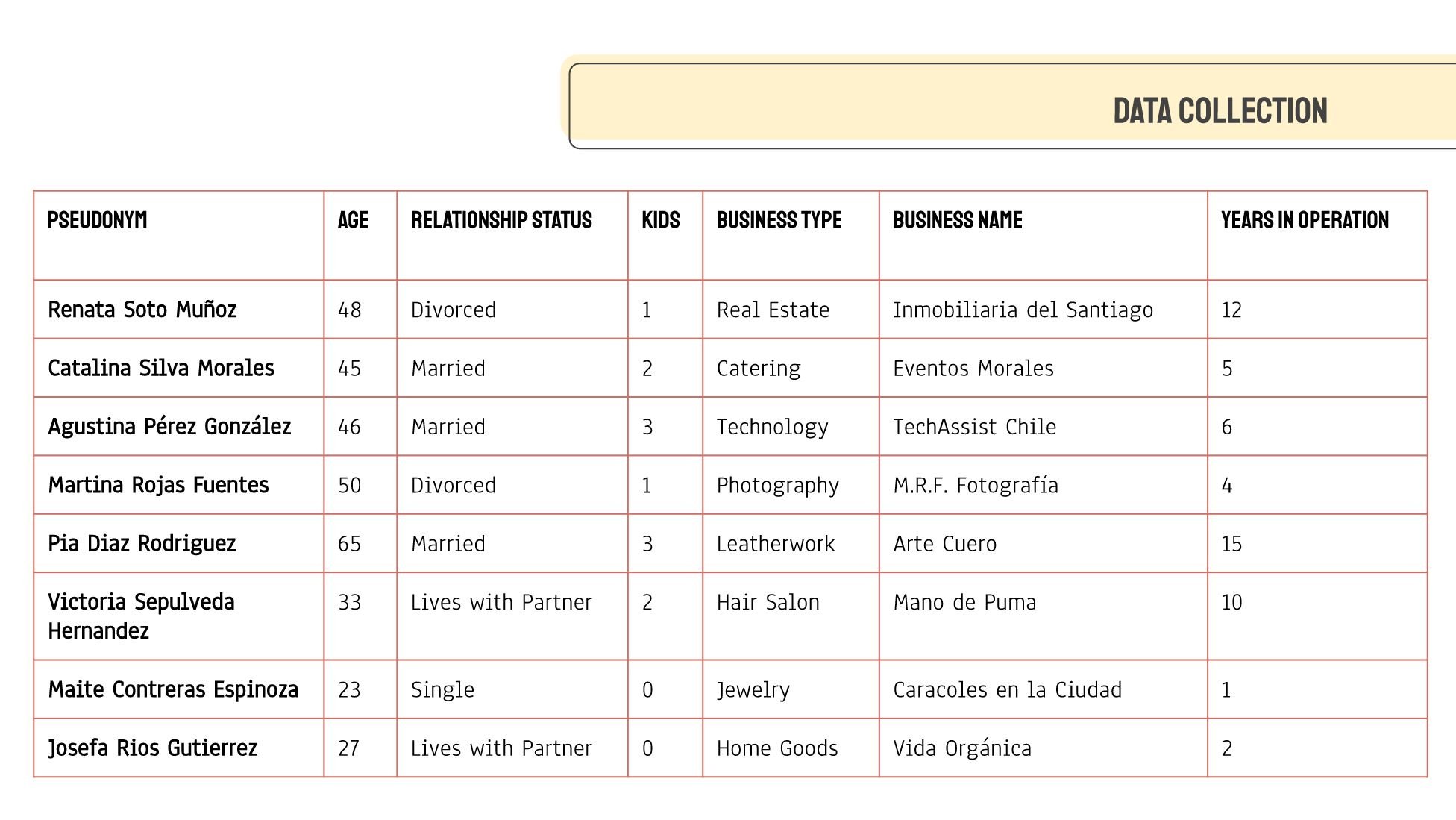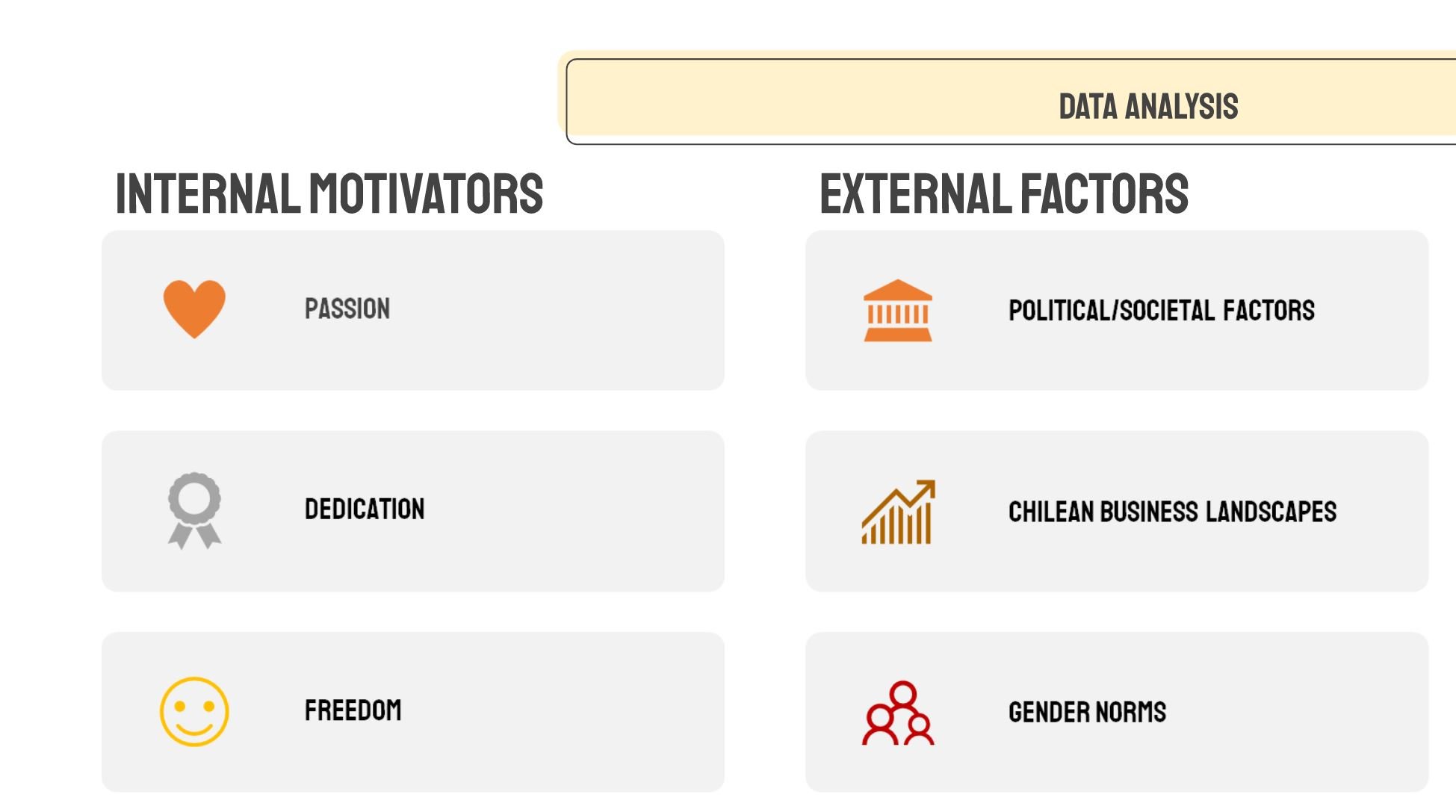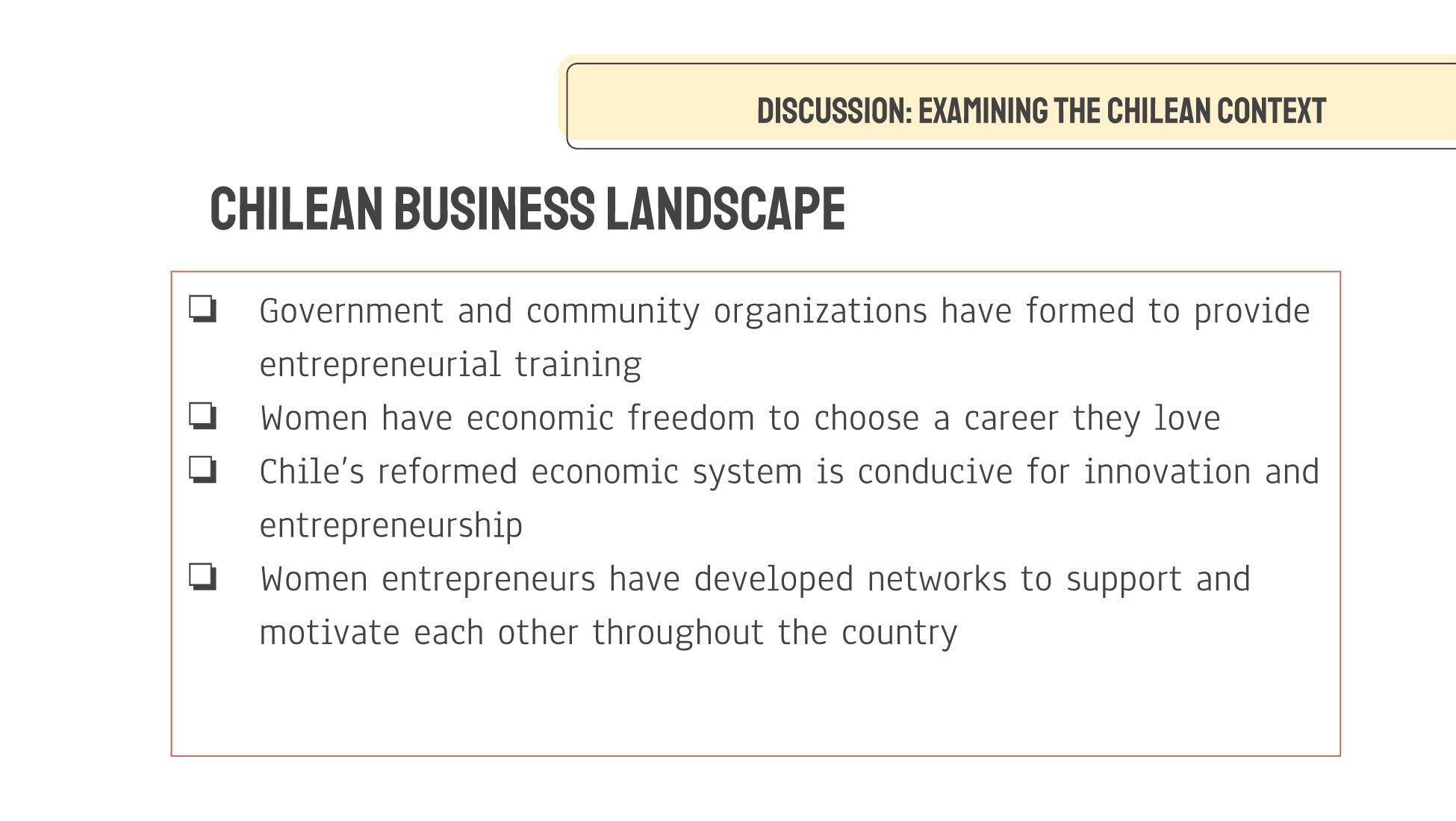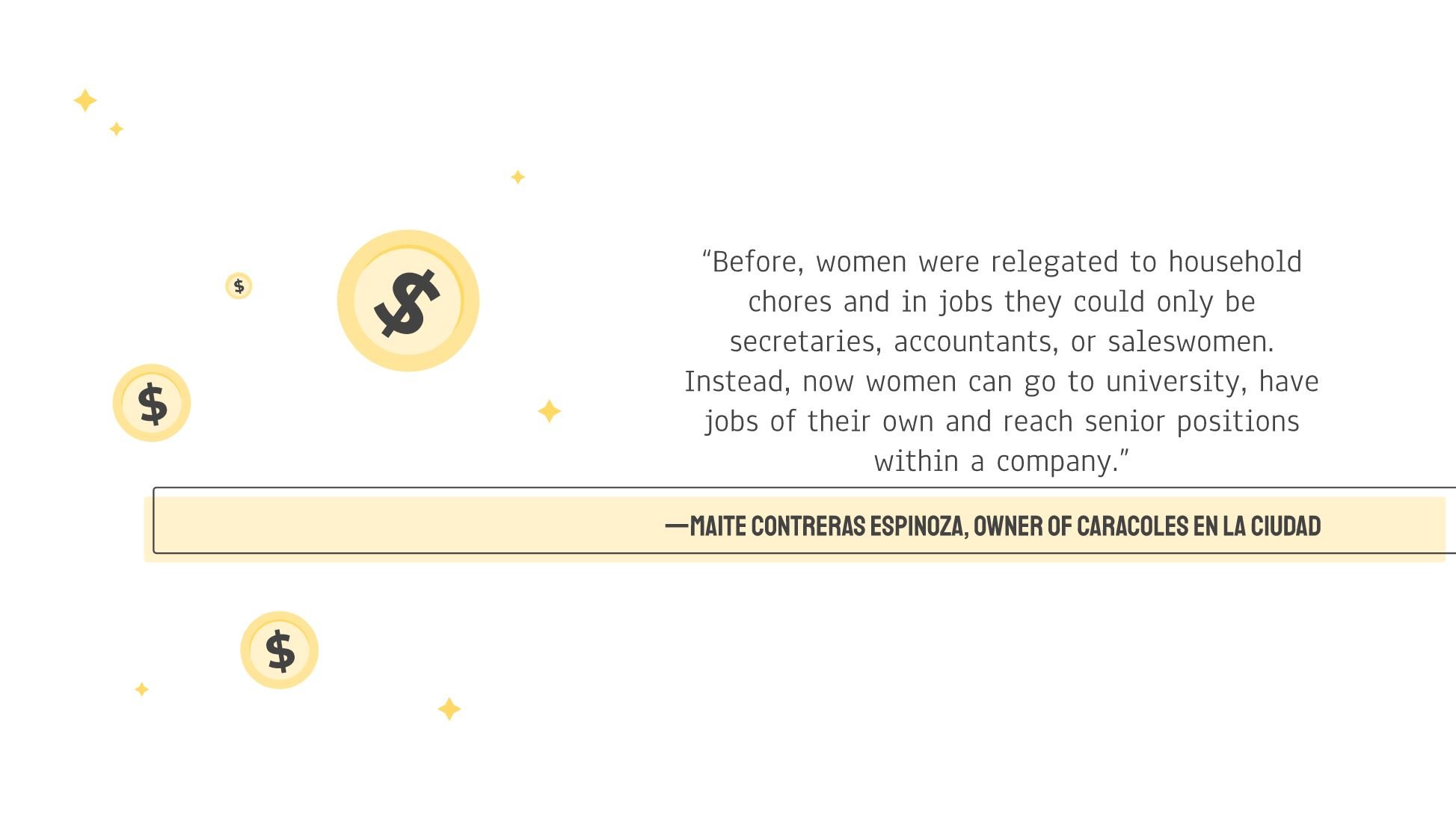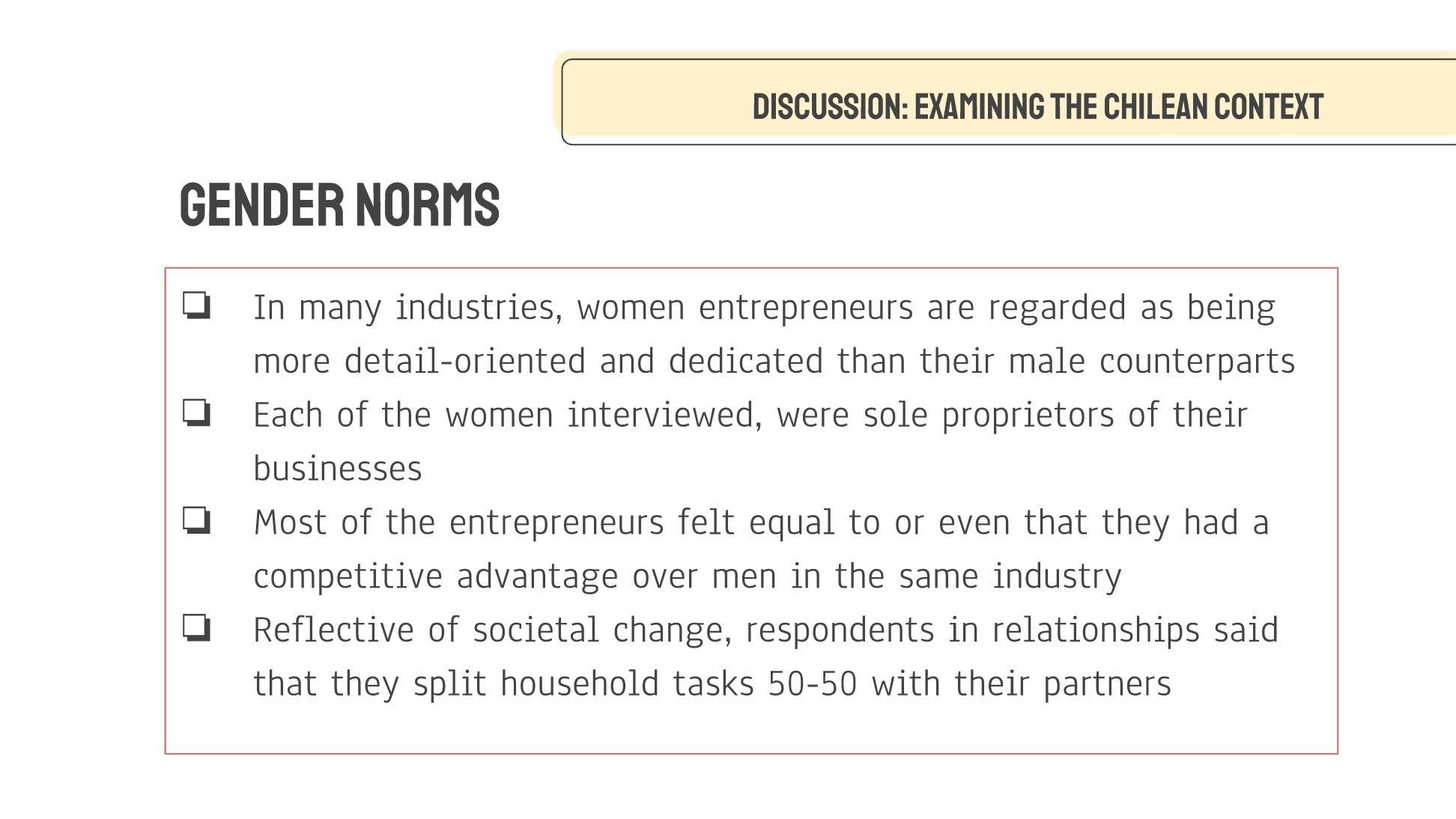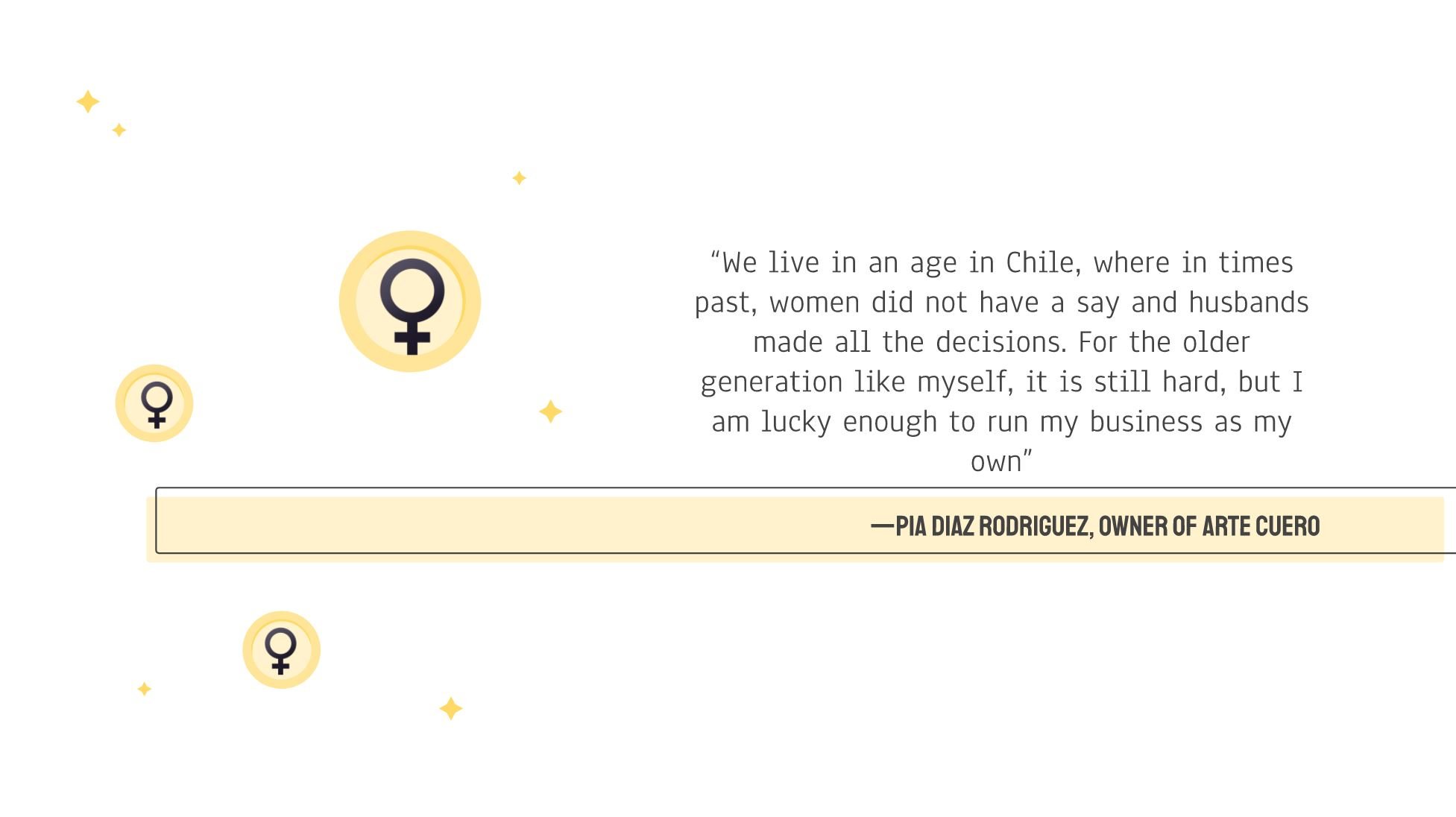Chile is home to a rapidly growing population of female entrepreneurs. In a region known for gender inequality, economic instability, and social unrest, I set out on a quest to understand what made Chile the perfect storm for women-led innovation.
The Background
As an undergraduate business student with double majors in management and entrepreneurship, I quickly learned that modern research on entrepreneurship is heavily focused on a) the Western world and b) on male entrepreneurs, even though according to the Global Entrepreneurship Monitor, there are approximately 252 million women entrepreneurs worldwide (Elam, 2019). In light of this disparity, I chose to focus on female microentrepreneurs in developing nations as the amount of research conducted on this population is still relatively low. Chile proved to be the perfect testing ground for my research for two reasons: It was where I spent six months studying abroad in 2019, and it is an emerging economy with a unique political and economic background.
Findings
-
Unlike many other women entrepreneurs in emerging economies, Chilean women are not pushed into entrepreneurship by necessity, but rather pulled by opportunity. They are instead motivated by passion, dedication to their craft, and the freedom afforded by entrepreneurship.
-
When analyzing the data, obvious similarities among the women began to emerge — leading to the creation of the below archetypes:
The Creative: This entrepreneur values independence, individualism, and differentiation within their enterprise.
The Perfectionist: This entrepreneur sees her craft as an extension of herself and thus is dedicated to creating the best possible experience for the client.
The Dreamer: This entrepreneur engages with life and the world around them through their business, using that which they are most passionate about as a base for entrepreneurship.
-
The political advancements of the last 30 years post-dictatorship have opened doors for women to feel empowered. Government changes such as a female president and the creation of agencies like the Ministry of Women and Gender equality have created a cultural shift that is both political and social.
-
Nationwide economic reform and increased quality of life have spurred an upward trend of Chilean women entering the workforce. Paired with private and public sector emphasis on entrepreneurial training and community development, Chile is now a conducive and lucrative country for innovation.
-
Given that Chile is still a relatively patriarchal society, a surprising observation was that each of the women interviewed believed that their enterprise is equal or superior to those of their male competitors because of their gender, and not despite it. For them, stereotypes about women, their characteristics, and the role that they play in society benefits their businesses in the long run. Further combatting the expectations surrounding women’s entrepreneurship is the fact that regardless of relationship or household status, decisions concerning each business are made solely by the entrepreneur herself, without input from men.
-
It is my hope that this thesis allows for a new range of entrepreneurship theories to be studied, one that accepts and understands that women-led enterprise is not monolithic and that each country and people will have their own unique set of challenges and identifiable motivators in starting a business. Using Chile as a case study and these eight women as representation for women’s entrepreneurship, it is apparent that each woman and business was unique. Although they shared enough key traits to be grouped together in the archetypes of “The Creative”, “The Perfectionist”, and “The Dreamer”, they retained their individuality and the driving spirit that made each business exceptional.













